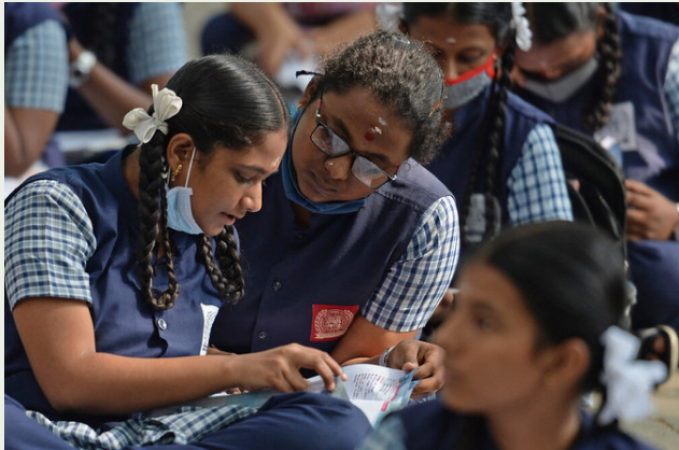
New Delhi: Academics are outraged over the recent removal of passages mentioning the Mughal Empire from Indian schoolbooks because they believe the action is intended to obscure the significant role Muslims have played in India's history.
Following the National Council of Educational Research and Training's decision to lessen the workload for students in the more than 20,000 public and private schools it oversees across the nation last year, the new history and political textbooks, particularly for grade 12 or students aged 17 to 18, were released in early April.
The Mughal dynasty, which ruled the subcontinent from the 16th to the 19th centuries and symbolised the global revival of Islamic culture, has had its content removed as a result of the changes.
Also Read: US guardsman detained in connection with leaked classified military documents
They also omit references to the Gujarat riots of 2002, which took place while Prime Minister Narendra Modi was in charge of the state and resulted in the deaths of hundreds of Muslims, as well as connections between Hindu extremism and Gandhi's assassination.
The revisions were criticised earlier this week by the Indian History Congress, the largest organisation of historians in South Asia with more than 35,000 members, who claimed they had created a "plainly prejudiced and irrational perception" of India's past.
According to Prof. Syed Ali Nadeem Rezavi, secretary of the congress, "It is an attempt to tailor history to wishes of the Hindu majoritarian agenda."
The University of Delhi's Farhat Hasan, a professor of mediaeval and early modern South Asian history, viewed the textbook revision as an effort "to obliterate the cultural memory of the Mughals."
Since Modi's Hindu nationalist Bharatiya Janata Party took office in 2014, a campaign to rename streets and cities with Mughal names has already been launched.
The attempt, according to Hasan, is to rewrite India's history, undermining its syncretic nature, in which Hindus, Muslims, and people of other faiths have all played significant roles.
"The Mughal legacy is vast and has influenced our culture in more ways than we are currently aware of. The Mughals had a significant influence on our literature, music, dance, architecture, and culinary preferences. For more than four centuries, they influenced South Asia's political culture, according to Hasan.
Also Read: Australia's northwest coast has been pounded by powerful Cyclone Ilsa
The textbook change, according to Aditya Mukherjee, professor of contemporary Indian history at Jawaharlal Nehru University in Delhi, is a "dangerous trend" that represents a "attempt to erase the names of Muslims, erase their achievements, demonise and ghettoise them."
The world's largest Muslim minority nation is Hindu-majority India, where more than 200 million people identify as Muslims. The history of India's Hindu majority is being erased while Muslim accomplishments are being weakened.
They are concealing the involvement of communalists and fanatic Hindus. They are concealing the connections between Mahatma Gandhi's killer and the RSS (a right-wing paramilitary group), Mukherjee claimed.
For a country with a variety of religions like ours, this is extremely dangerous.
Dr. Archana Ojha, an associate professor of history at Jawaharlal Nehru University, expressed concern that the younger generation would suffer because of the unscientific way that textbooks have been condensed.
"History is the description and analytical evaluation of past events based on accumulated empirical data. When new sources are examined, judged, and supported by scholars, history is revised, according to her.
Also Read: New solid-fuel ICBM from North Korea intended to "strike terror" on adversaries
"Removals from history will only result in glaring gaps that are challenging for students to understand. Before more damage is done, we need to speak up, reason with the powerful, make sane voices heard in public, and educate the populace.